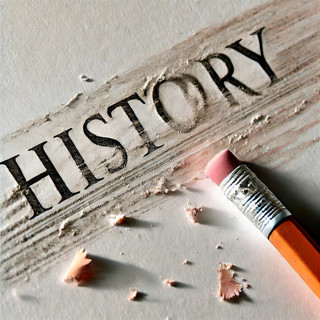January 2025
How can we shape a brighter future without understanding the lessons of the past? In this powerful exploration of history’s relevance, Monica Granlove delves into the challenges of preserving truth in education amidst rising political extremism, and why learning from history is more urgent than ever.
Last updated 13 months ago
The Importance of Learning From History
By Monica Granlove
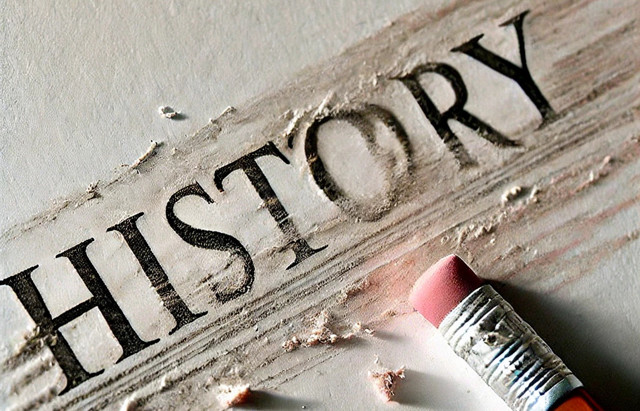
As I reflect on history, I recognize the challenges people have faced throughout the globe, but I also see the incredible resilience, growth, and progress that have shaped our world. The future is in our hands, and by learning from the past—its triumphs and its mistakes—we have the power to create a better tomorrow. Every generation has the ability to move forward with hope, guided by knowledge, empathy, and understanding. The good news is that more and more people, especially younger generations, are stepping up, eager to engage with history, challenge the status quo, and forge a brighter path.
#Learnfromhistory has been my platform since I began my journey as an author. I believe its relevance has never been more applicable or more urgent than in today's world. Far-right political groups are gaining popularity across the globe, often running on platforms centered around anti-immigration, nationalism, and expansionist policies. These groups frequently employ divisive and fear-based tactics to rally support and stoke public sentiment. This article focuses on the education system and right-wing politicians wishing to change how history is taught in schools.
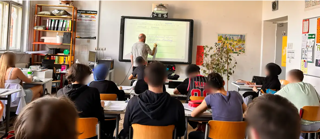
After World War II, Germany and the Allied powers placed a strong emphasis on education to ensure the atrocities of the Nazi era would never be repeated. The Allies mandated the removal of Nazi ideology from schools and textbooks, introducing curricula that emphasized democratic principles and the moral lessons of the war.
Teaching about the Nazi era, the Holocaust, and the dangers of totalitarianism remains a core part of education in Germany2 and many other countries today. In Germany, Holocaust education is mandatory, with students learning about Nazi crimes in school and often visiting former concentration camps, such as Dachau or Auschwitz, to understand the human cost of the regime. Memorials and museums, like the Topography of Terror and the Jewish Museum, serve as educational resources while laws prohibiting Holocaust denial and Nazi symbols reinforce the importance of confronting this history responsibly.
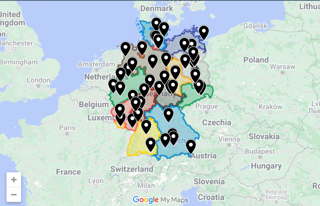
Globally, countries like the United States and many in Europe include Holocaust education1 in their curricula, supported by organizations such as UNESCO, the European Holocaust Research Infrastructure (EHRI), and various national memorial centers. Initiatives in countries like Germany, France, and Poland also play a pivotal role in preserving this history. However, the rise of misinformation and Holocaust denial underscores the need for continued efforts, with educators integrating survivor testimonies, museum collections, and digital resources to engage new generations. This ongoing commitment helps promote tolerance, democracy, and awareness of history's lessons.
Far-right groups like the Alternative für Deutschland (AfD) have challenged how Germany addresses its Nazi past and Holocaust education, although the country's mainstream political consensus remains committed to historical accountability. AfD leaders have criticized Germany's culture of remembrance, with some dismissing the Nazi era as insignificant compared to Germany's broader history or calling for less emphasis on guilt in school curricula. They have also questioned the resources dedicated to Holocaust memorials and education, with figures like Alexander Gauland who referred to the Nazi period as a "speck of bird poop” and Björn Höcke who described Berlin's Holocaust Memorial as a "monument of shame." Both men are politicians for AfD. Despite these efforts, the AfD's rhetoric has faced strong resistance from educators, major political parties, and civil society groups, ensuring Germany's commitment to Holocaust education remains intact. This pushback highlights the resilience of Germany's efforts to use its history as a foundation for promoting tolerance, democracy, and the rejection of extremism.
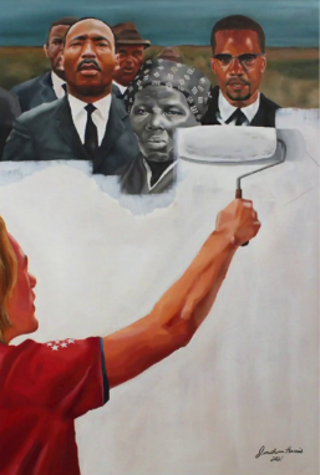
In the United States, there is growing concern that some members of the Republican Party and allied groups are attempting to whitewash history, particularly regarding slavery, racism, and systemic inequality. Republican-led states have passed laws banning the teaching of so-called "divisive concepts," restricting discussions of systemic racism and white privilege in schools, often under the guise of opposing Critical Race Theory (CRT)3, a university-level framework. These efforts include reframing history to emphasize patriotic narratives, downplaying slavery and racial oppression, and even suggesting that enslaved people "benefited" from slavery, as seen in Florida's curriculum standards. Additionally, book bans targeting works on race, gender, and LGBTQ+ issues have further limited historical education. Despite strong resistance from educators, historians, and civil rights groups, these measures threaten to create a generation of students with a narrow and sanitized understanding of America's complex history, undermining critical thinking and democratic values.
Studying history is essential because it allows us to understand the present by providing valuable insights into the past. By examining the events, decisions, and experiences that have shaped societies and cultures, we gain a clearer picture of how we got to where we are today. History helps us learn from past mistakes and successes, develop critical thinking skills, appreciate diverse cultures, and become more informed and engaged citizens. It enriches our understanding of the world, our identities, and the complex relationships between societies across time.
Key Benefits of Studying History
- Critical Thinking Development: Analyzing historical events requires us to evaluate evidence, consider different perspectives, and draw conclusions based on fact. This process nurtures critical thinking skills that are applicable in all areas of life, enhancing our ability to analyze and make decisions.
- Cultural Understanding: Studying history exposes us to the diverse cultures, traditions, and practices of different societies. It deepens our appreciation for cultural differences and helps us understand global issues that continue to shape the world today.
- Identity Formation: Learning about our own historical narratives—whether national, familial, or personal—gives us a clearer sense of who we are and how we fit into the broader tapestry of human history. This understanding strengthens our connection to our roots and contributes to the formation of our identity.
- Informed Citizenship: Knowledge of history empowers us to make informed decisions as active participants in society. Whether it’s voting, advocating for change, or engaging in discussions about contemporary issues, historical awareness ensures we contribute meaningfully to the world around us.
- Learning from Past Mistakes: By studying past events, particularly conflicts, injustices, and societal failures, we gain insight into how such issues arose and how they might be avoided in the future. History teaches us the importance of learning from our errors to prevent repetition of similar mistakes.
- Empathy Building: Exploring the experiences of people from different times, places, and backgrounds fosters empathy. Understanding the struggles, triumphs, and lives of others helps us appreciate the complexities of human existence and develops our ability to relate to those different from ourselves.
- Analytical Skills Improvement: The study of history enhances our research and analytical skills. Interpreting historical data, evaluating primary and secondary sources, and understanding the broader implications of events strengthens our ability to interpret information accurately and critically.
Studying history is not just about looking back—it's about looking forward with a greater understanding of where we've been, what we've learned, and how we can continue to grow as individuals and as a society. By reflecting on the past, we can navigate the present and build a more informed, empathetic, and resilient future. The novel The Electrician and the Seamstress gives a first account view from a traditional middle class German family and how they navigated the rise of the Nazis when they disagreed with the ideology. Order your copy today.
Endnotes
1The US Holocaust Memorial Museum:
2Deutsche Welle (DW):Teaching About Nazis and the Holocaust in German Schools
3MSNBC:Critical Race Theory Painting Depicting Whitewashing of Black History Goes Viral
